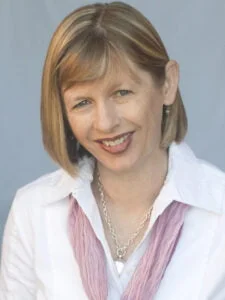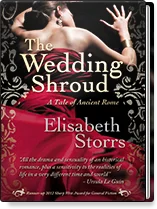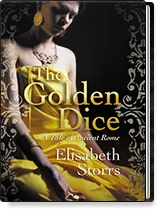Australian historical novelist Elisabeth Storrs, whose first book was trade published, is disappointed that the Australian government will not consider self-published works in the Prime Minister's Literary Awards scheme. ALLi hopes that its Open Up To Indies campaign will help Australian indie authors turn around the apparent national disregard and misunderstanding of the quality and literary value of the best indie authors and their work.
 I learned this week that the Australian Prime Minister’s Literary Awards are now open for submissions. As an Australian author, I found this heartening given the lack of support from some of Tony Abbott’s fellow conservatives for literary endeavours. In 2012, the Queensland premier scrapped his literary awards for cost-cutting reasons. More recently, a NSW government discussion paper on its future arts policies made no mention of initiatives in the field of literature.
I learned this week that the Australian Prime Minister’s Literary Awards are now open for submissions. As an Australian author, I found this heartening given the lack of support from some of Tony Abbott’s fellow conservatives for literary endeavours. In 2012, the Queensland premier scrapped his literary awards for cost-cutting reasons. More recently, a NSW government discussion paper on its future arts policies made no mention of initiatives in the field of literature.
The Prime Minister may be encouraging excellence in writing but not every Australian author is welcome to compete. The entrance criteria contain the ubiquitous rule that ‘Self-published books are not eligible.’ Presumably this is because the organisers assume that opening the gates to indies will force judges to wade through a flood of ill-conceived and poorly written books.
Ill-informed & Inappropriate Exclusion
Let’s scrutinise that misconception about the standard of all self-published works. For years, dedicated editors have prided themselves in being able to sift gold from dross to discover authors with literary talent. Unfortunately, most of the novels they champion are knocked back by in-house marketing teams because ‘literary fiction doesn’t sell.’ Suddenly those books are automatically deemed to be inferior in quality for failing to pass an acquisitions meeting even though the writing is first-rate. Luckily for readers, many of these ‘rejected’ authors choose to take on the business of producing professionally edited and formatted books themselves. The indie market is now recognised as an arena where gifted non-conformist writers can find an audience.
Self-publishing – the Natural Home for Australian Literary Fiction
The world of self-publishing is not just the preserve of authors who have failed to secure a publishing deal. A recent post in The Guardian, “Publish and be branded: the new threat to literature’s laboratory”, examines the trend for publishing houses to promote big names to the detriment of mid-list authors. The article paints a depressing picture of publishers concentrating predominately on promoting ‘branded’ best-sellers rather than fostering promising writers. I have also heard that one of the major Australian publishing houses has cut its literary fiction list. Once again the option to self-publish beckons for those left to rely on small advances, meagre royalties, and lost opportunities.
Interestingly, the Australian Publishers’ Association will soon be hosting a debate exploring whether ‘A larger wave of big-name authors will defect to indieville’ based on a prediction by Mark Coker. If the Smashwords’ founder is indeed prescient, the question arises as to whether celebrated Australian authors would be prohibited from entering the Prime Minister’s Literary Awards after choosing to convert to self-publishing.
 While I am in no way a critically acclaimed or commercially successful writer, I face a similar predicament. In 2010, my debut novel, The Wedding Shroud, was published in Australia and New Zealand by Murdoch Books. At the time I was excited that my editor considered the book worthy enough to enter into four major Australian literary awards: the Kibble, Barbara Jefferis and Dobbie Awards together with the CAL Waverley Library Award for excellence in research. In 2012, after negotiating the reversion of rights, I self-published this novel globally and have since gone on to release the sequel, The Golden Dice. Consequently, as an indie writer, I’m now precluded from entering my new book in most literary competitions in my own country.
While I am in no way a critically acclaimed or commercially successful writer, I face a similar predicament. In 2010, my debut novel, The Wedding Shroud, was published in Australia and New Zealand by Murdoch Books. At the time I was excited that my editor considered the book worthy enough to enter into four major Australian literary awards: the Kibble, Barbara Jefferis and Dobbie Awards together with the CAL Waverley Library Award for excellence in research. In 2012, after negotiating the reversion of rights, I self-published this novel globally and have since gone on to release the sequel, The Golden Dice. Consequently, as an indie writer, I’m now precluded from entering my new book in most literary competitions in my own country.
The Aussie concept of giving everyone ‘a fair go’ is definitely flouted here.
 Even when I was traditionally published, I never expected to win a place at the finishing line in those awards (the competition was too tough), but I was pleased that I could at least qualify to take my place at the starting blocks. It is my hope that self-published authors will be granted the same opportunity to compete in the future everywhere in the world. Who knows – one day an indie might even be presented with a first prize at a ceremony presided over by an Australian prime minister.
Even when I was traditionally published, I never expected to win a place at the finishing line in those awards (the competition was too tough), but I was pleased that I could at least qualify to take my place at the starting blocks. It is my hope that self-published authors will be granted the same opportunity to compete in the future everywhere in the world. Who knows – one day an indie might even be presented with a first prize at a ceremony presided over by an Australian prime minister.
ALLi warmly invites self-published and indie authors all over the world to join its campaign to Open Up To Indie Authors.
- Read more about ALLi's Open Up To Indies campaign here
- Volunteer to spread the word about ALLi's Open Up To Indies campaign
- Sign ALLi's Open Up To Indies petition
- Read about the imminent launch of our new Open Up To Indies handbook





The Stenographer machine has been replaced by digital equipment
to make the process of transcribing procedures and events more efficiently.
These court reporting apps include features like instant access
to your case repository and a client-care center. Knutson was attempting to prevent his
previous injustice from being uncovered and reversed.
Nice article, Elisabeth.
The traditional publishing industry is replete with ready-made excuses. Thus they will say ‘literary fiction does not sell’ or ‘we know what sells’ (when they don’t!) and then go on to publish either ‘Fifty Shades of Grey’, or literary fiction written by academics who have (or are pursuing) an M.A. in Creative Writing or a PhD (at, preferably, Flinders Uni!).
So I’ve had to self-publish my first (literary fiction) novel, ‘Tango: A Fable’, as I have no formal tertiary arts education (I am a retired doctor, not an anti-intellectual!)
This despite the fact that I got two highly positive appraisals for the novel prior to self-publication. These were professional appraisals (involving structural editing) for which I paid a total of $1300. (One appraisal mentioned that I was writing in ways that often took other writers years to master.)
So I just don’t believe the excuses of the literary agents and publishers, for the twenty-two rejections I got before self-publishing.
The N.S.W Premier’s Literary Awards, in which I entered my novel in 2013, has (in small print) allowance for self-published works. But whether they are actually presented to, and read by, the judges, is probably unverifiable. My suspicion is that the big-name authors (Keneally, Wood, Kent, and so on) are selected from the (possibly hundreds of) entries for the three literary judges to consider. I’d have the same doubts about self-publishers getting a ‘fair go’ in other Australian literary competitions, were they able to enter.
The way I see things, it is the whole (journalists, art critics, festival organizers, acquisitions editors, and agents) of the traditional publishing industry that only gives a fair go to those who have the necessary writing ‘qualifications’. That’s fine for technical writing or non-fiction. But for literary fiction, if you don’t get traditionally published you are excluded. From everything: contests, bookshops, professional critical reviews, writers’ festivals, macro media and literary magazine advertising and so on.
And the result?
Creativity has now been hijacked by those who see themselves as an elite. Which wouldn’t be a problem if they recognized that occasionally, those who are not ‘qualified’ to write literary fiction, produce creative work that excels. But in denying a fair go to those who are ‘unqualified’, they also deny readers what they deserve: a true meritocracy where fidelity should be to the art form alone, not to the interests of careerists.
There. I’ve had my say. I feel better now.
I can see eliminating books produced by vanity publishers some way, and there are ways to scam almost any system humans can invent (ie, sales on Amazon – pay people to buy the right number of books; reviews – ditto) so requiring some of these sales or reviews will not strictly limit books submitted.
But they could limit the books submitted by these methods, and then actually read the ones that make it through the initial sieve – so that there is some quality in what is sent to the judges.
I agree – is seems un-Australian to put out a blanket prohibition. Perhaps this is not the intent, and the contest will clarify.
There is an American award – the Christopher Doheny Award for “excellence in fiction or nonfiction on the topic of serious illness by a writer who has personally dealt or is dealing with life-threatening illness, either his or her own or that of a close relative or friend” that has the same prescription against self-publishers. Since that’s the kind of book I’m writing, I was quite discouraged to find out that self-pubbers need not apply.
It’s their playground, and their prize money – and the rewards go to encourage their view of the world – so they can do as they please, but we don’t have to like it, and we should complain.